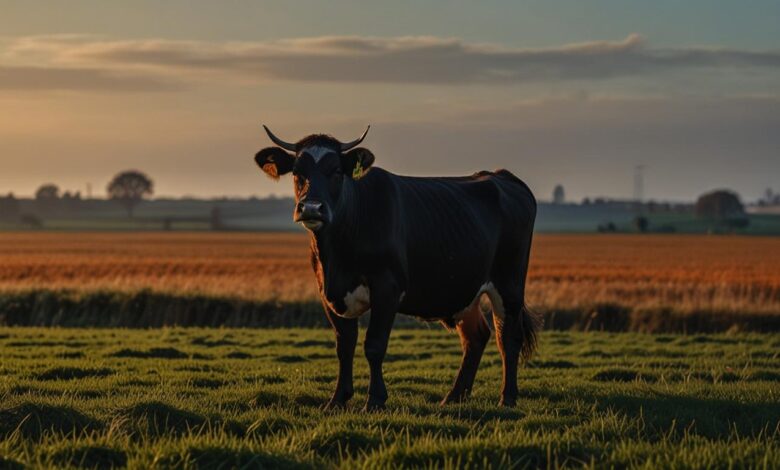Denmark to Introduce Greenhouse Gas Emissions Tax for Livestock Farmers

Denmark is paving the way for sustainable agriculture by introducing a tax on livestock farmers based on their greenhouse gas emissions. The new policy aims to reduce emissions by 70% by 2030 and offers transition supports for farmers through reforestation and carbon sequestration initiatives.
Denmark is set to become the first country in the world to tax livestock farmers on their greenhouse gas emissions. This decision is part of the government’s strategy to achieve a 70% reduction in emissions by 2030 compared to 1990 levels.
The new tax, which will be implemented from 2030, has been agreed upon by political parties, farmer representatives, and environmental groups and is expected to be ratified by the Danish parliament in August. Initially, the carbon tax will be set at 300 Danish kroner (approximately £33) per ton of carbon dioxide equivalent. This amount will increase to 750 Danish kroner (£83) by 2035. However, a 60% deduction will be offered to farmers, reducing their effective tax rate to 120 kroner (£14) per ton in 2030.
The average Danish cow is estimated to emit around six tons of carbon dioxide equivalent each year, mostly in the form of methane. Therefore, the tax translates to about 720 kroner (£82) per cow, increasing to 1,800 kroner (£206) by 2035.
Revenue from the tax will be reinvested in transition supports for farmers, including tree planting and rewilding initiatives. Additionally, landowners will face charges related to their fertilizer usage and for disturbing carbon-rich soils.
The Danish Agriculture and Food Council chairman, Soren Sondergaard, expressed cautious optimism, noting that the model includes enough concessions and opportunities for farmers to benefit.
The initiative aligns with similar efforts internationally, such as comments from Martin Lines of the UK’s Nature Friendly Farming Network, advocating for agriculture’s role in emission reduction and carbon sequestration.
This Danish policy also includes plans like converting 15% of agricultural land to forests and nature areas and establishing a biochar subsidy scheme worth over 10 billion kroner ($940 million) until 2045.
The agreement aims to cut CO2 emissions by 1.8 million tons by 2030 and sets a new global precedent in addressing agricultural emissions.








